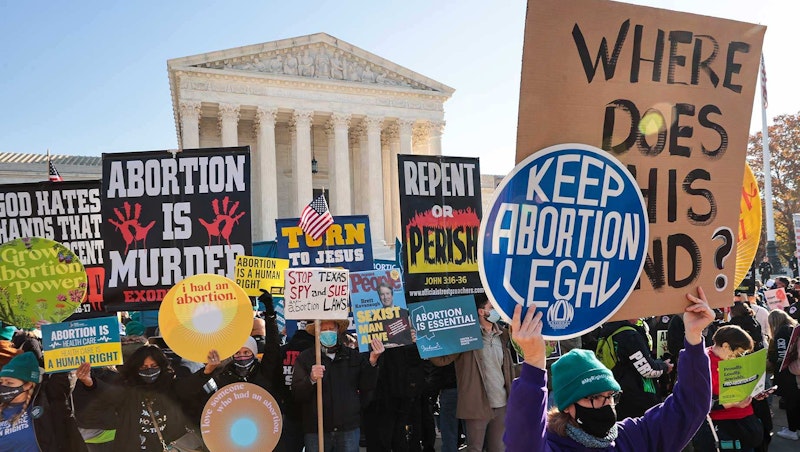The Supreme Court kicked abortion law back to the states in the June 2022 Dobbs v. Jackson Women’s Health Organization ruling, but the issue remains as divisive as ever in federal politics. Abortion remains a topic in the 2024 presidential election, where Democrats and the media continue pressing Republicans on a so-called national abortion ban. Don’t buy it.
I’m pro-life and want the federal government to add a Human Life Amendment to the Constitution, protecting life from conception until natural death, but no major political figure backs anything like that, nor is there any chance it’ll happen in the next five years. It’s more accurate to describe the national abortion ban Democrats and the media like to talk about as a federal gestational limit.
The pro-life side knew what it wanted when it spent years fighting for life. It wanted to enact as many abortion restrictions as possible at the state level and have the federal government overturn Roe v. Wade. Post-Roe, the pro-life side has lost momentum and elections. It lacks a unified agenda, but politicians like Lindsey Graham and organizations like Susan B. Anthony Pro-Life America support a 15-week federal gestational limit, referred to by liberals as a national abortion ban.
Fewer than five percent of abortions happen after 15 weeks, limiting the effectiveness of such a limit since banning abortion only prevents some, but not most, abortions. Women could obtain abortions earlier in the pregnancy, travel out of the country to get an abortion, or have an illegal abortion instead.
Talking about the proposal is a waste of time. While presidential candidates like Donald Trump and Nikki Haley often field this hypothetical question from reporters about what they want for a federal gestational limit, the truth is the United States will remain a global outlier on that issue for at least the next five years. The United States is one of seven countries that allows for elective abortions past 20 weeks, along with China, North Korea, and Vietnam, all of which identify as communist.
But passing a federal gestational limit requires a bill to pass with a simple majority in the House and 60 votes in the Senate. The Democratic Party has a Senate majority, and all of its members support abortion. The Republicans also have three pro-choice U.S. Senators: Susan Collins, Lisa Murkowski, and Shelley Moore Capito. Some other Senate Republicans may also say that abortion is with the states where it belongs. The Senate now has, at most, 46 pro-lifers, if you include Mitt Romney, the former pro-choice governor of Massachusetts.
Other than attacking Republicans with hypotheticals, why bring up this hapless 15-week gestational limit by misleading people and saying that Republicans want to ban abortion nationwide? Trump probably couldn’t care less about this issue. He refused to answer in 2016 whether or not he’d ever paid for an abortion and has repeatedly slammed DeSantis (when he was still a candidate) for signing a heartbeat bill into law. I hate the heartbeat bill because it permits abortion for six weeks too many, and over one-third of abortions happen before six weeks.
Assuming Trump’s the nominee, however, he needs to improve his answer when asked about a national abortion ban. Trump said he wants to bring the pro-life side and the pro-choice side together and negotiate a limit that pleases both sides. That’ll never happen, and the answer will please no one. The abortion rights side supports no restrictions, and we pro-lifers want to end abortion in America, so why attempt to strike a balance when no chance exists of a federal gestational limit becoming law? Congress lacks the votes for stronger born-alive protections when the baby is outside of the womb, and Democrats oppose the well-intentioned Pregnant Students' Rights Act because it supposedly stigmatizes abortion; killing children deserves stigma.
Trump supports baby bonuses and implied men would have more unprotected sex because of them at CPAC last year. Throw in the FDA approving over-the-counter birth control, increased Title X funding for non-abortion providers (while defunding Title X abortion providers), ending the military's paid abortion travel expenses, increasing the child tax credit, cutting the cost of living for families, and expanding paid (and even unpaid) family leave, and the GOP can help protect the unborn federally. The party should never abandon the goal of ending abortion, but it needs to recognize its short-term limitations.

